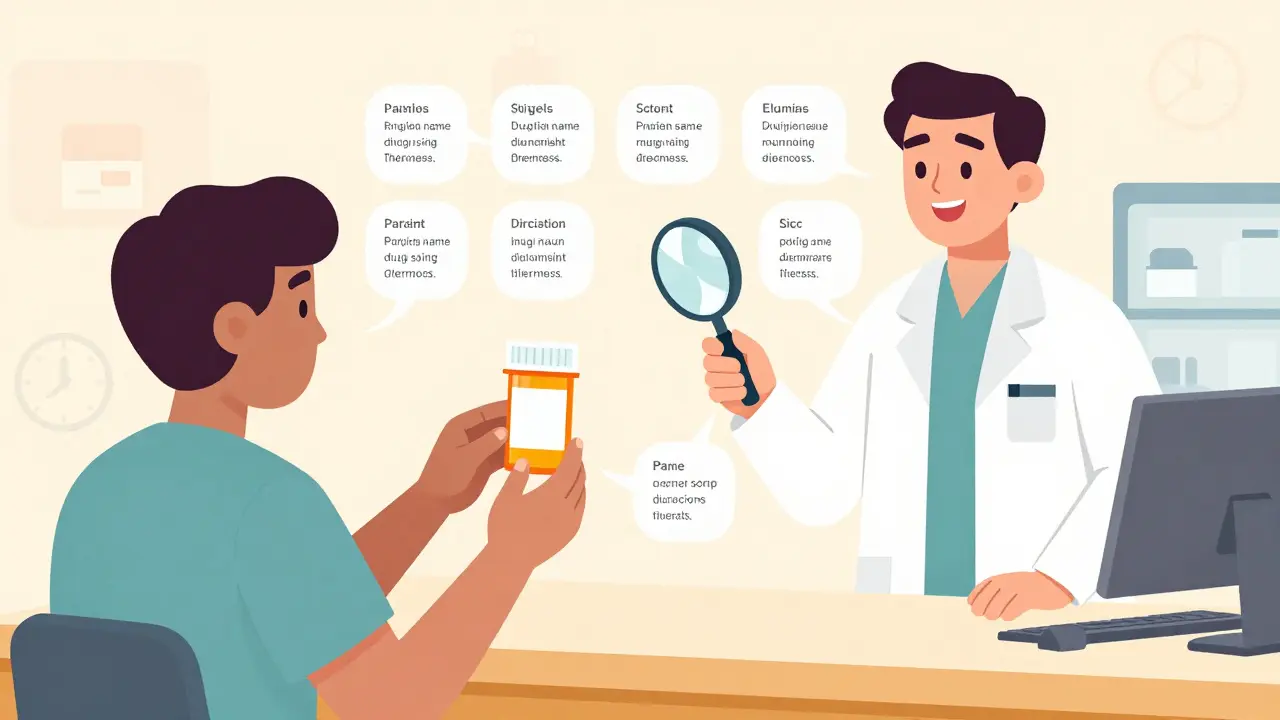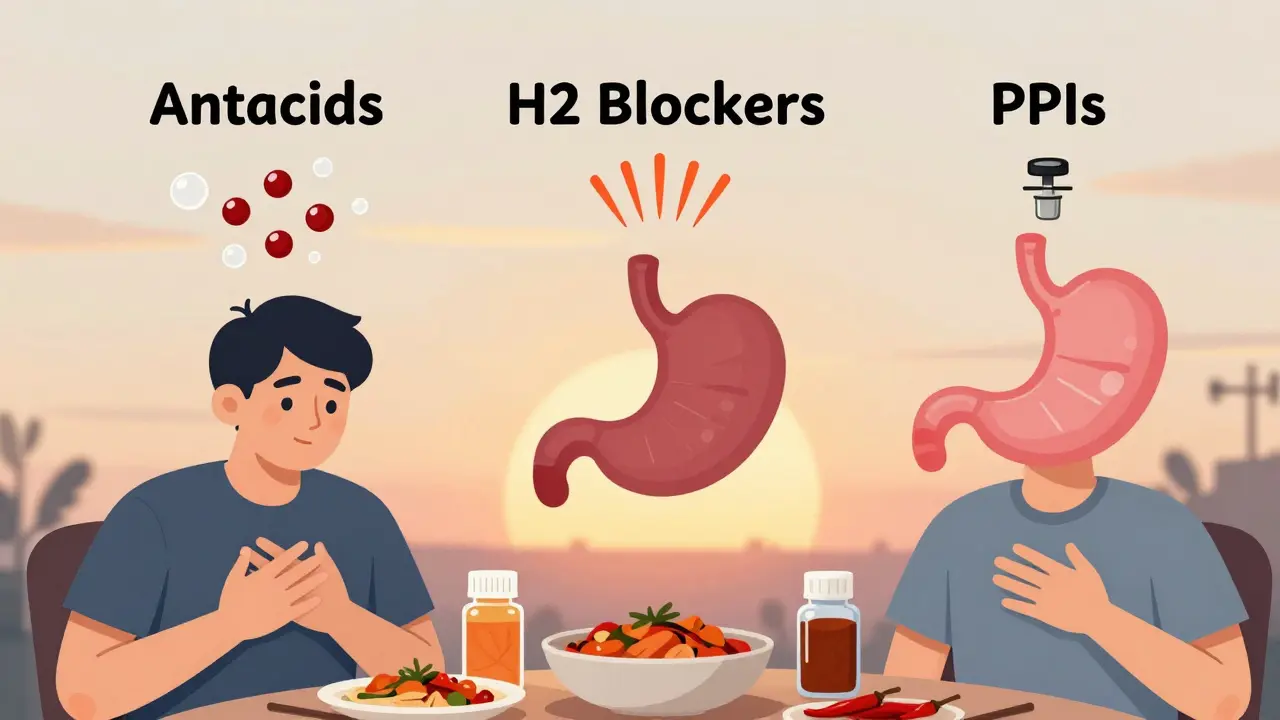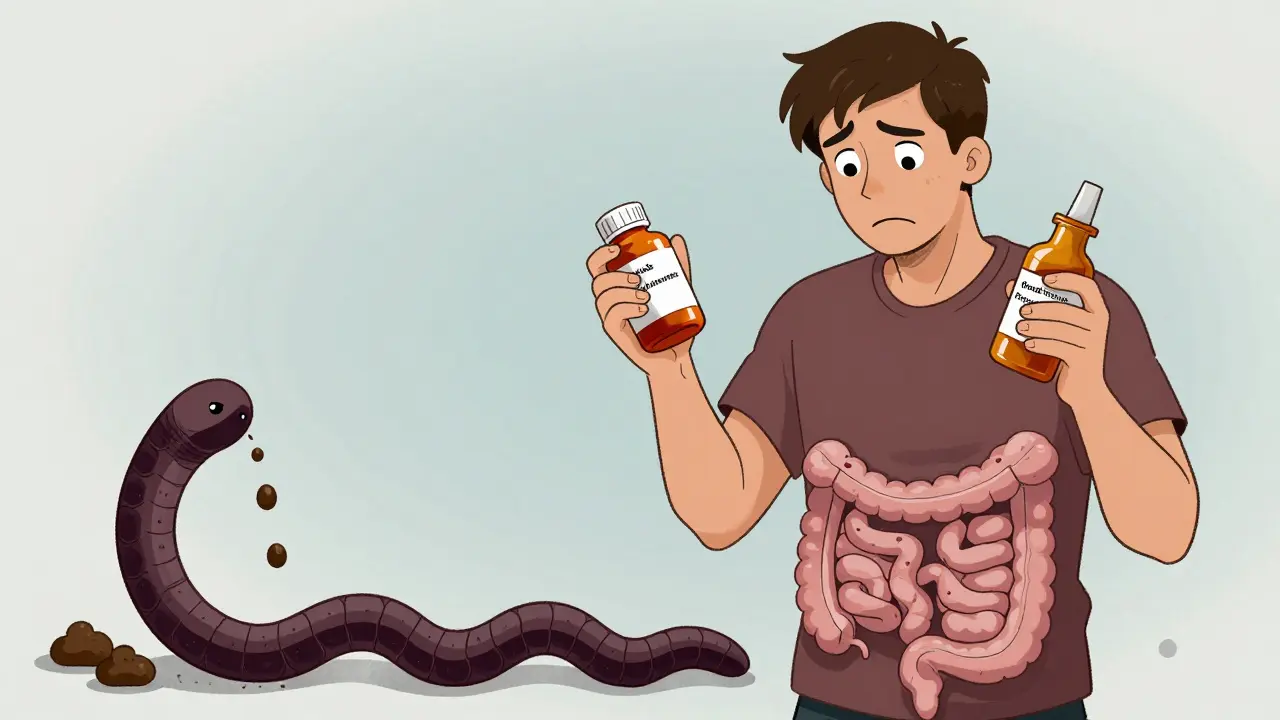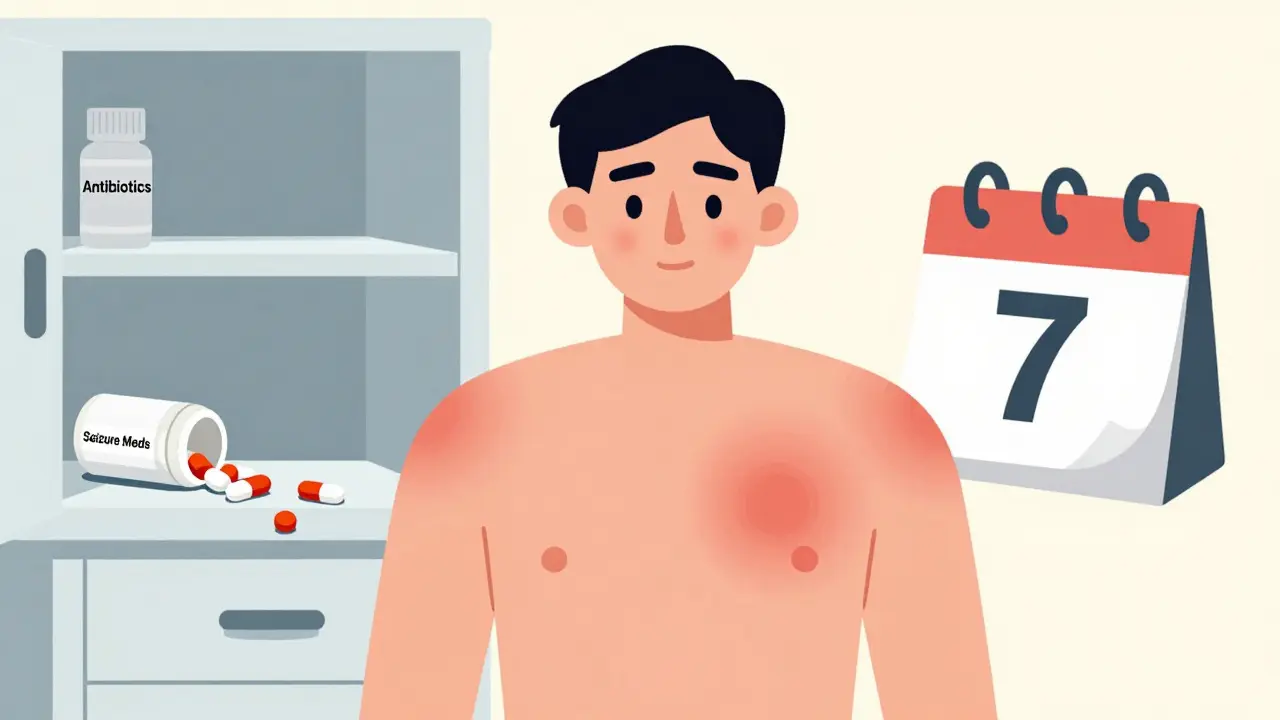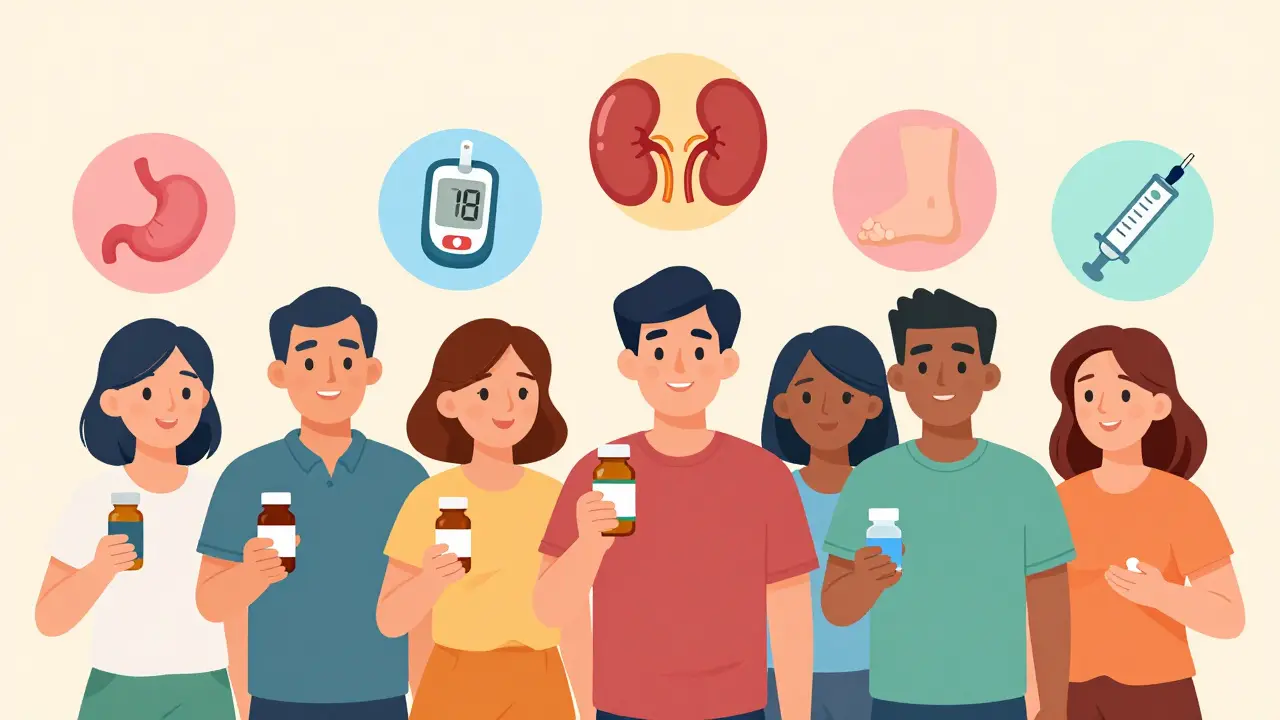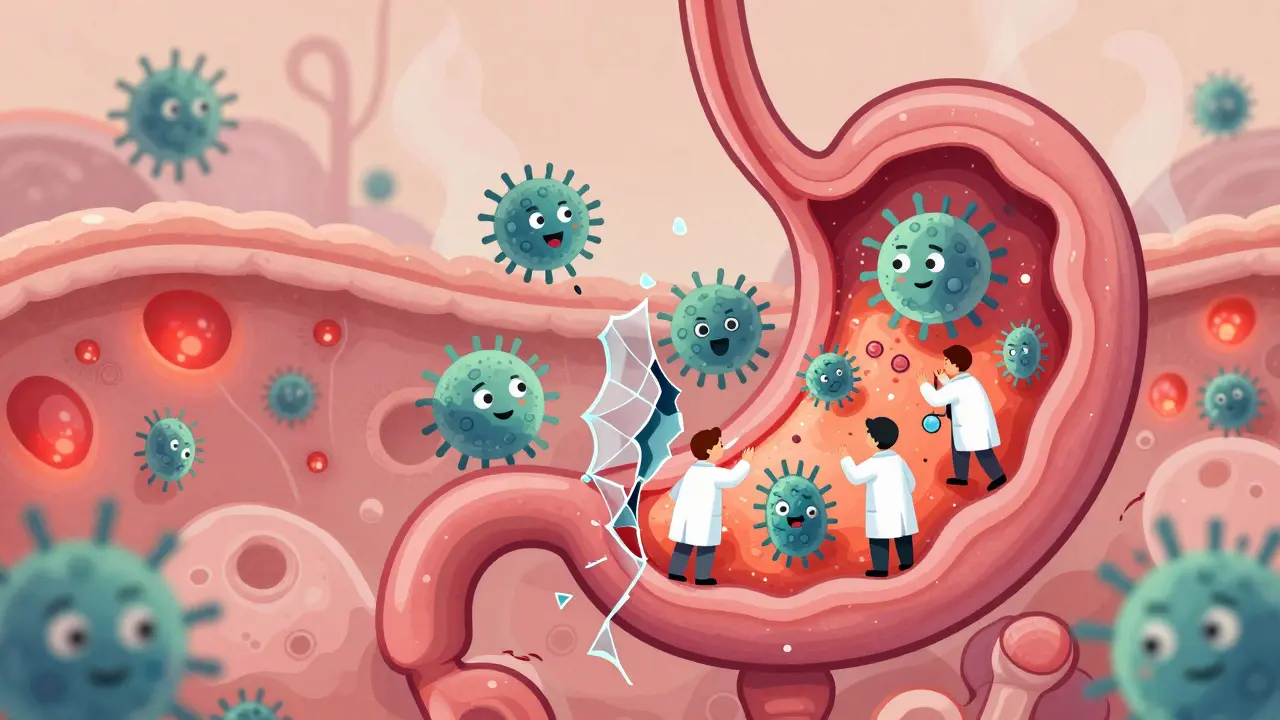Express Meds Canada: Your Trusted Pharmaceutical Resource - Page 4
Questions to Ask About Your Prescription Label at the Pharmacy
Learn the essential questions to ask about your prescription label at the pharmacy to avoid dangerous medication errors. Know what’s required on the label, how to spot red flags, and how to get help if you’re confused.
Patient Safety Goals in Medication Dispensing and Pharmacy Practice: How to Prevent Errors and Save Lives
Patient safety goals in pharmacy practice are designed to prevent deadly medication errors. Learn how labeling, barcode systems, high-alert drug protocols, and leadership commitment reduce harm and save lives.
OTC Heartburn Medications: Antacids, H2 Blockers, and PPIs Explained
Learn how antacids, H2 blockers, and PPIs work for heartburn relief. Know which OTC medication is right for your symptoms - and when to stop using them.
Constipation from Medications: How to Manage It Effectively
Medication-induced constipation affects up to 60% of opioid users and many taking anticholinergics or blood pressure drugs. Learn which laxatives actually work, which ones make it worse, and how to prevent it before it starts.
Skin Rashes and Medication-Induced Dermatitis: What Patients Should Know
Learn how to recognize dangerous skin rashes caused by medications, which drugs are most likely to trigger them, and what steps to take if you develop a reaction - from mild itching to life-threatening conditions like SJS or DRESS.
Diabetes Medications and Side Effects: What to Expect
Understand the side effects of common diabetes medications like metformin, insulin, SGLT2 inhibitors, and GLP-1 agonists. Learn what to expect, how to manage side effects, and which drugs are best for your health goals.
Retail vs Hospital Pharmacy: Key Differences in Medication Substitution Practices
Retail and hospital pharmacies handle medication substitution differently: retail focuses on cost and patient notification, while hospitals use clinical teams to optimize drug therapy. Understanding these differences helps prevent errors during care transitions.
Gastritis and H. pylori: Understanding Stomach Lining Inflammation and Effective Treatment
Gastritis is stomach lining inflammation often caused by H. pylori bacteria. Learn how it's diagnosed, treated with modern therapies like vonoprazan, and why antibiotic resistance is changing treatment protocols.
Border and Customs Rules for Bringing Medications Internationally in 2025
Learn the 2025 rules for bringing prescription and controlled medications across international borders. Avoid seizures, fines, or arrest with essential documentation tips, country-specific warnings, and step-by-step prep guidance.
CGRP Inhibitors: The New Standard for Migraine Prevention
CGRP inhibitors are the first migraine-specific preventive drugs, reducing headache days by 50% or more for half of users. They’re safer, better tolerated, and more effective than older options like topiramate or beta-blockers.
